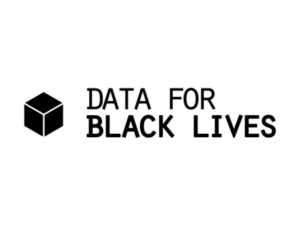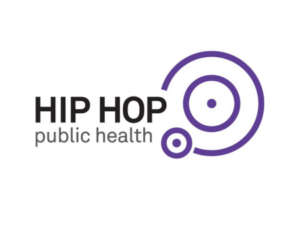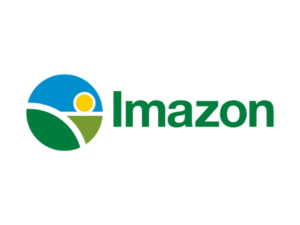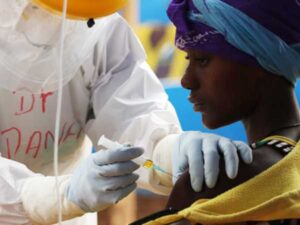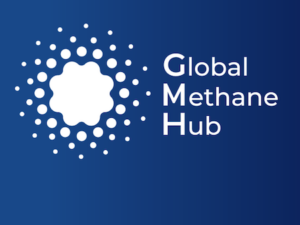Pillars Fund amplifies the leadership, narratives, and talents of Muslims in the United States to advance opportunities. They have distributed more than $9 million in grants to Muslim organizations and leaders who advance community-focused initiatives, push back against harmful narratives, uplift Muslim stories, and give collectively to generate resources within Muslim communities for Muslim communities.
Kalia Abiade of Pillars Fund spoke with Jessica Kantor on January 31, 2024. Click here to read the full conversation with insights highlighted.
Jessica Kantor: Can you please introduce yourself, the organization that you’re with and the problem that the organization is working to address?
Kalia Abiade: My name is Kalia Abiade. I am with the Pillars Fund, and the problem we’re trying to address is the lack of rights, access, and opportunity for Muslim communities across the United States. This is a problem that’s exacerbated by really harmful narratives alongside a lack of resources and coordinated funding. A lot of our work is around civil rights, access to mental health care, civic power — but also, how some of that access is interrupted by the pervasive and harmful narratives in popular culture and the news.
Jessica Kantor: How is the organization working to address that?
Kalia Abiade: Pillars Fund has three main approaches to tackling this problem through community grantmaking. First, we support Muslim-led nonprofit organizations across the United States working on reimagining public safety through our Catalyze Fund. A lot of that falls under the First Amendment Right: all things related to surveillance, law enforcement, overreaches, racial profiling, and lack of access to religious rights in prisons.
Second, we support research and advocacy related to promoting mental health and wellness. Faith and mental health has always been a tricky subject to tackle. Among religious groups, Muslim communities are documented to be the most likely to attempt suicide. That’s not something many people know, and that finding was discovered by one of our grantee partners who published her research on JAMA [The Journal of the American Medical Association]. Although that’s one of the most extreme cases of mental health crisis, we also support work in everyday mental health challenges that have been exacerbated by not only COVID, but the presence of racism and religious discrimination in the USA.
Third, we support programs building civic power. That involves everything related to holding our elected and appointed officials accountable, being really active participants in the civic engagement process year round, and also training folks to run for office themselves. Muslim communities are growing quickly in places like Georgia where they’re growing larger than the margin of victory in some of the tightest races. Our community is growing large enough to really have an impact even though we’re relatively small.
We have a second area of programming around culture change. Our signature program within that is a fellowship of emerging Muslim filmmakers. It’s in partnership with Riz Ahmed’s production company called ‘Left Handed FIlms’ which is built on top of research that we conducted with USC [University of Southern California] about the portrayals of Muslims on screens. The research didn’t tell us anything we didn’t already know. Portrayals are terrible, but it’s still really important to have that documented so that we could build this really exciting fellowship on top of it.
There are ten inaugural fellows who got $25,000 in unrestricted grants in addition to mentorship and access to professionals at the height of their careers; it’s underwritten by Netflix and Amazon Studios. Our fellows have had the opportunity to meet people like Malala, Hasan Minhaj, Mahershala Ali, and others. We’re now recruiting our second class of fellows and have more than 250 applicants for those 10 slots. We have our work cut out for us because there’s so much talent in the community.
There are other things we do within that work: advocating at agencies and studios about diversifying their content and writer’s rooms; sharing our research findings about our community; and helping them strategize on how to include more Muslim voices.
There’s a benefit to getting the story right, but also, there’s a really ripe audience who’s ready for this kind of content. It’s real, authentic and exciting stories; not just a PR solution for the Muslim community.
Jessica Kantor: How are you interacting directly with community at the different levels? Are you partnering with government organizations? Community-led groups? Social media?
Kalia Abiade: In the community grantmaking, we have thirty-one Muslim-led or Muslim-focused grantee organizations across the country. It’s grown organically, but we work primarily with the organizations that have a broader reach into their various communities. It’s a pretty tight-knit group of organizations that fit within those categories. Our primary points of contact are the leaders of those organizations, but we also have an open call for ideas every year that goes out primarily through our social media and word of mouth.
We have an open call on our website every year, but most people get referred to us either through a donor, another grantee, or a partner organization.
When we launched our initiative on research, we got a lot of reach with just organic media. Some publications did features on it as well, like Variety and the New York Times. It’s also been helpful to have notable partners on board like Riz Ahmed, Netflix and Amazon Studios. It really helped give it some heft when it went out into the world.
Then with our donors, that has been the most organic thing. It’s been a real word of mouth that has slowly grown the network to about forty high net worth families that give $25,000 or more each year. In addition to being supporters of the fund, they’re also a giving community that’s able to strategize together because they have access to our grantees to learn about issues impacting our community. Community and trust is a really important component of that. There’s a real hunger and desire to support these organizations.
Jessica Kantor: What are some of the challenges that you’re currently facing? What are some of the distinctive challenges to working within the Muslim community?
Kalia Abiade: Most of the organizations we support emerged post-2001 after the Patriot Act came down, so we don’t have these legacy organizations that have been doing this for very long. We look at comparable organizations like ACLU (American Civil Liberties Union), NAACP (National Association for the Advancement of Colored People), and ADL (Anti-Defamation League) and see that all of them emerged during inflection moments in history.
That same is true about our big nonprofit organizations. Most of them emerged post-2001, but there was another spike post-2016 in response to Trump’s Muslim Ban that created another burst of innovation in this space.
One of the challenges has been the scrutiny on Muslim donors for decades in this country. Long before Pillars was founded, there were trusts that were established to support mosques across the country that were getting dinged for technical errors on their paperwork or being accused of being connected to terrorist efforts overseas.
So, Muslim donors felt vulnerable giving to Muslim organizations. It eroded the trust within the community, which was the purpose of laws like that.
Our initial partnership was with the Chicago Community Trust in 2010. Pillars didn’t have a 501(c)(3), so all donations went through the Chicago Community Trust — the oldest trust of its kind in the USA. That gave Muslim donors a safe place to give knowing that the money was going directly to Muslim community organizations with no overhead taken out. The trust was such an incredible partner.
We have a 501(c)(3) now as a fully-staffed formal organization, but some donors still choose to give through the trust. That’s been a really important way they’re able to give to Pillars while still incubating them from the extra scrutiny.
That’s been the biggest barrier: overreach and discrimination in the finance world. Pillas has now been around long enough that many of them just donate directly to us, but in those earlier years, that was a really important part of establishing trust with our community of donors.
There are also generational things, which you find with many communities that have large immigrant populations that give ‘back home’ instead of here in the States. Most of our donors are now second generation, so they see their future as being here, but they’re also still trying to find their footing, trying to find consensus and focus on a spearhead issue.
We’re used to naming everything that’s wrong… which is a lot… but they’re not unique to us. We also need to rally around something to build, and I think that’s happening especially around the first amendment rights. It’s about finding the right messaging and framing.
There’s also a lot of income disparity within the Muslim community, so there’s a lot of internal organizing to do as well.
Jessica Kantor: Can you share an example that illustrates the impact of your work?
Kalia Abiade: Sometime after 2016/2017, we named mental health as one of our focuses. Part of that came from a chaplain who used to work at the University of Pennsylvania.
While she was a chaplain there, the Muslim Student Association learned that they were being spied on by the NYPD. When they found out, it was extremely disruptive and destablizing amid already experiencing discrimination. It ruptured trust among each other in that community. They didn’t even feel safe in the room they had designated on campus. They were just trying to stay close to their faith and be connected with their community of young people, yet they were being scrutinized by the federal government. It was a scary thing for 19/20-year-olds. It was a critical coming of age moment.
We funded a film called, “The Feeling of Being Watched” about a similar occurrence in a community just outside of Chicago that showed how it disrupted individual mental health and community stability.
This chaplain happened to have a background in mental health as well, so she helped establish an organization called the ‘Muslim Wellness Foundation’ and started the ‘Black Muslim Psychology Conference’ where everyone was invited but the focus was on Black Muslim mental health professionals. Their focus was on looking at where the needs and gaps were, and how to resource faith leaders in responding to mental health.
Identifying that gap was huge for us. As we deepened our funding in the mental health space, we realized that it was impacting every bit of our other work too… from those working on voter engagement to those reimagining public safety. They were all dealing with this.
Our grantee who published in the Journal of American Medical Association brought credibility from both the worlds of medicine as a trained psychiatrist, and also, as a trained Islamic scholar.
She was able to really work within Muslim communities to talk with Imams and other faith & community leaders about not only suicided prevention, but also postvention: what to do when someone takes their life and how to respond to avoid perpetuating more harm.
Other faith communities ended up coming to her and her team to request those resources as well. That example crystallized for us that when we solve an issue for the Muslim community, we are helping to solve it for other communities as well.
Our Muslim community is one of the youngest and fastest growing communities in the United States due to rapid conversion rates. We are a sort of microcosm of the United States; we’re small in numbers, but we cut across so many different communities. Time and again, our work has supported communities impacted by things like incarceration, immigration, and other issues affecting the broader population.
Jessica Kantor: Do you have any other examples that you wanted to share?
Kalia Abiade: Karim Khan, based in the UK, is one of our culture change fellows. He worked on this BBC project called ‘All Creatures Great and Small’ which is a classic BBC period piece about a vet that took care of animals. It’s a very sweet story, and he was a writer on that.
He was relatively unknown and still emerging, he had his real breakout moment with his play called ‘Brown Boys Swim’ that led him to start winning awards in playwright circles including a festival in Edinburgh. It’s this coming of age story about two Muslim boys in the UK who were invited to a swim party but didn’t know how to swim. In the play, they committed to learning how to swim and tackled all of these cultural norms, stereotypes, barriers and stigmas in the process. He wrote that in the most lighthearted way.
It ignited a bidding war between studios to have it adapted for television. So, he went from relative obscurity to taking meetings with these studios and having to navigate how to deal with that. Seeing him go through the journey of working with his mentors, joining our convenings, and watching his progress through all of this is everything we could ask for to come out of that program. That’s the kind of magic that can happen.
There’s so much support and demand for it that we get requests to expand the program, but we think that having a cohort of ten lets them be a resource to one another. They’re all very close. They’ve graduated from the program, but you still see them going to each other’s premieres or brainstorming with one another on WhatsApp. They’ve also come back and been reviewers for this process.
Even some of our mentors, like Ramy Youssef, talk about how they didn’t have this kind of community of Muslim creatives that could help them navigate the industry when they started. Even though they’re more established, the mentors also get to feel like a part of this new community. Now, this cohort has it and they’re extending the benefit from it to other people.
We’re really excited to have another class go through that, and hopefully, we’ll see some other really exciting wins. But more importantly, we want them to have a community of people where they don’t have to translate their experiences. They can skip that part and get to exactly what is challenging them. That was the feedback that we got over and over from our post-fellowship survey as the biggest benefit.
Our first convening was in New York; we took them to The Met to go on a private tour of the Islamic Art wing, which was very special. They have their first Muslim creator, and she helped situate them by reminding them that the art they’re creating is part of a long tradition. It helped them feel more connected to a creative community of Muslims.
It’s things like that that help them orient and stay connected even if it’s not with Pillars. It’s that kind of individual, but also collective, impact that we’re most excited about.
Jessica Kantor: What are some teachable lessons or main insights that might be helpful to others based on your organization’s unique approach?
Kalia Abiade: We’ve tried to be really unapologetic about centering Muslim leadership. It’s been really important to build the infrastructure of our community. That may not be for everyone, and that’s okay. We may have missed out on opportunities on levels of specificity, but it’s been really important to us to be Muslim-led. That really cuts across our work.
We’ve found others who get excited about telling Muslim stories, and we think that’s amazing, but our focus is on building this bench. That’s really, really important to us.
In 2020, there was this burst of investment across the corporate and entertainment sector to invest in more black executives and black creatives, but we’re kind of seeing that unravel a bit. For various reasons, there was a trend. You can speculate on all the reasons, but from the outside, we can see that investing is waning.
Right now, we’re seeing that a lot of our grantees are experiencing backlash for having spoken up in solidarity of Palastinians across the world; we know that these trends in philanthropy don’t stick. All these funds that were emerging to support creatives of color could go away once the pressure is off if they’re not really instituted within these organizations.
It’s been really important for us to fortify that donor network because we really understand where community power comes from, so we’re really, really firm about being in a building mode.
My advice would be to anyone who is tempted to mold and adapt their organizations to these funding opportunities to become a ‘perfect’ fit is to be cautious. Before we had any foundation dollars, we had about six years of work under our belt as a proof of concept. That’s been critical for us to build on.
Jessica Kantor: How are you working on systemic change?
Kalia Abiade: We have a team member who is trained in social work, so we’ve been using a lot of her models to think about how this happens from the inside out. We work in concentric circles. We have to first work within the community, making sure folks have what they need, but then start expanding outwards.
We always make sure something is resonating with our community first. Culture change and narrative change, for example, requires a lot of effort to do audience research to understand the dominant audience: how to shift that movable middle, or how to reach a mass audience.
But first, we have to make sure content and programming resonates with the Muslim community. We have to believe that it’s worthwhile content before going out to convince the rest of the world. It reinforces and reaffirms that sense of worthiness from within our communities, then builds upon that to the organizations and community partners. Then, maybe one day see this from a macro level.
We’re not in a place where this is a complete victory story from the outside, so that internal sense of dignity and affirmation has to come first before we can do that external work. Our general approach to it has been to focus on our own communities as those we’re trying to serve.
We believe that our work will have benefits to other communities, but we have to start from the inside within our own community.
Jessica Kantor: How do you think the work is going to evolve over the next five years?
Kalia Abiade: I think we’re going to get bigger. We’ve grown steadily since 2010, especially since 2016, but we haven’t really talked about scale that much. Our Muslim community is really diverse; there’s not always an inherent connection to what’s happening in Palestine, but in the last four months — especially with the backlash I’ve mentioned with — no one has been spared of the impact of what’s going on.
It’s been like this post-2001 moment again. There’s been an increase in hate crimes and discrimination; all the progress that our communities and organizations have made has felt tenuous.
If anything, we need to go deeper and make those roots even stronger. We’re exploring things like endowments and formal funds to have different verticals to sustain this work. Our work has been pointing to the direction of scale in order to build the kind of lasting impact that we need.
I’m sure we’ll come across new challenges in doing that, but there’s estimates of the Muslim population being somewhere between three to four million in the USA, which is a small percentage, but it’s growing quickly.
We just know that we’re able to do this work in a way that actually impacts not only Muslim communities, but the broader society.
Jessica Kantor: Thank you for talking with me today.
Click here to read the full conversation with insights highlighted.
Jessica Kantor is an independent journalist specializing in health, human rights, and social impact. Her work can be found in Fast Company, Healthcare Quarterly, The Las Vegas Review-Journal, and others. She is a living kidney donor.
* This interview has been edited and condensed.
Find other social innovations in the Muslim community.


